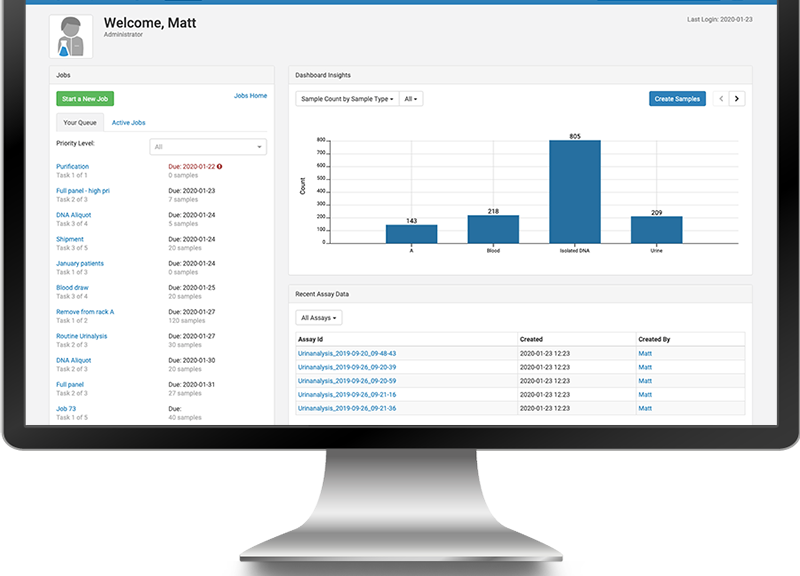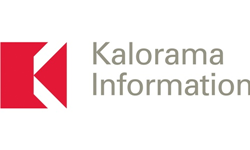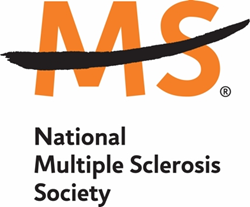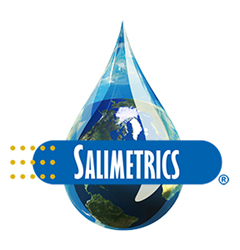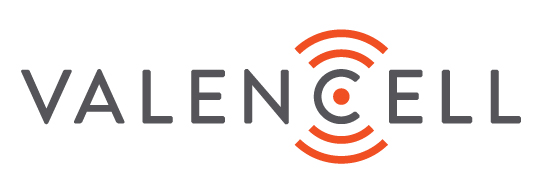Today’s test menus cannot be static. Infections appear or they enter markets they are not expected in. Even large panels with scores of tests won’t cover everything.
ARLINGTON, Va. (PRWEB)
January 30, 2020
The recent novel coronavirus, responsible for over 100 deaths in the Hubei province in China at the time of writing, undermines any notion of a known quantity of infectious disease threats in the world that lab analyzer menus will remain adequate, according to IVD market research Kalorama Information. Swine flu, Ebola, and Zika were reminders that laboratories need to be vigilant and that in vitro diagnostic test makers must constantly update assays that providers can use to identify threats.
“Today’s test menus cannot be static,” said Bruce Carlson, publisher of Kalorama Information. “Infections appear or they enter markets they are not expected in. Even large panels with scores of tests won’t cover everything.”
Diagnostic tools such as reverse transcription polymerase chain reaction (RT-PCR) and sequencers have been used in characterizing and identifying the virus, and new tests are in development. IVD vendors are supporting efforts. Meridian Bioscience announced that its freeze-dried Lyo-Ready 1-Step RT q-PCR mix is being used in the coronavirus outbreak in China.
Kalorama Information projects the infectious disease IVD testing market to be worth more than $18 billion, according to its latest complete world infectious disease market research report, with revenue growth higher than the 4% of normal testing markets.
The new virus — dubbed 2019-nCoV — has already been sequenced, and Chinese health authorities have posted the full genome via the Global Initiative on Sharing All Influenza Data (GISAID) portal, which collects information on respiratory diseases. This allowed other researchers to quickly detect the RNA mechanisms of the virus and develop novel detection methods. Using this information, the U.S. Centers for Disease Control and Prevention (CDC) has developed its own real-time PCR test.
Study of the genetic code revealed that the novel betacoronavirus is in the same virus family as severe acute respiratory syndrome (SARS-CoV) and Middle East respiratory syndrome (MERS-CoV); in those diseases, bats were the source. The name coronavirus comes from the virus’ crown-shaped appearance when viewed in electron microscopy, and, indeed, the shape appears to be a significant detail. It is believed that the heavily glycosylated “spike” protein helps it fuse with host cell membranes, assisting the virus to spread to host cells.
At the time of writing, the CDC laboratory in Atlanta was the only U.S. lab indicated to complete viral isolation and perform real-time PCR to diagnose 2019-nCoV; however, the agency has distributed test protocols and plans to make reagents available. For cases of suspected coronavirus in patients having recently traveled to affected regions, the CDC procedures call for the collection of sputum, nasopharyngeal swabs, and blood.
Currently, no testing kits specifically for 2019-nCoV are commercially available. On January 23, Altona Diagnostics announced it was in the process of developing a molecular diagnostic assay for detecting 2019-nCoV in close cooperation with major reference institutes for emerging diseases. Altona Diagnostics was one of the first companies to make reliable molecular diagnostic kits commercially available during outbreaks of SARS-CoV, MERS-CoV, and the Ebola and Zika viruses, among others.
Also, molecular diagnostics maker Co-Diagnostics announced several days ago that it has completed design work for a PCR screening test for the new virus.
If experiences with the Ebola and Zika viruses are any indication, IVD vendors will be at work modifying test technologies and developing tests for emergency approval.
Roche and Chembio Diagnostic Systems were among the vendors to produce emergency use authorization (EUA) tests for Ebola. A number of coronavirus MERS tests are on the market — including Siemens Fast Track, Seegene Anyplex, Roche LightMix, and Bio-Rad CFX96 — and the manufacturers are in a good position to adapt their technology for related novel viruses. Abbott Laboratories indicated that it is actively monitoring the 2019-nCoV outbreak in a recent podcast.
Kalorama Information’s Infectious Disease Diagnostics World Market Analysis: HIV/AIDS, Hepatitis, Tuberculosis, STDs, HAIs, ID/AST, Influenza, TORCH, Other report contains market sizing for every major country market in the world. https://kaloramainformation.com/product/infectious-disease-diagnostics-world-market-analysis/
Data provided include the following:
-
Global Infectious Disease IVD Demand by Country/Region 2018 – 2026 (million dollars) (North America: United States, Canada & Mexico; Western Europe; Asia/Pacific: China, Japan, Other; Cent & So America; Eastern Europe; Middle East; Africa; Total World)
- North America – Infectious Disease IVD Demand by Product Group 2018 – 2026 (million dollars) (STDs, Hepatitis, HIV/AIDS, HAIs, ID/AST, Influenza, Tuberculosis, TORCH, Other, Total N Amer)
- United States – Infectious Disease IVD Demand by Product Group 2018 – 2026 (million dollars) (STDs, Hepatitis, HIV/AIDS, HAIs, ID/AST, Influenza, Tuberculosis, TORCH, Other, Total US)
- Canada – Infectious Disease IVD Demand by Product Group 2018 – 2026 (million dollars) (STDs, Hepatitis, HIV/AIDS, HAIs, ID/AST, Influenza, Tuberculosis, TORCH, Other, Total Canada)
- Mexico – Infectious Disease IVD Demand by Product Group 2018 – 2026 (million dollars) (STDs, Hepatitis, HIV/AIDS, HAIs, ID/AST, Influenza, Tuberculosis, TORCH, Other, Total Mexico)
- Western Europe – Infectious Disease IVD Demand by Product Group 2018 – 2026 (million dollars) (STDs, Hepatitis, HIV/AIDS, HAIs, ID/AST, Influenza, Tuberculosis, TORCH, Other, Total W. Europe)
- Germany – Infectious Disease IVD Demand by Product Group 2018 – 2026 (million dollars) (STDs, Hepatitis, HIV/AIDS, HAIs, ID/AST, Influenza, Tuberculosis, TORCH, Other, Total Germany)
- France – Infectious Disease IVD Demand by Product Group 2018 – 2026 (million dollars) (STDs, Hepatitis, HIV/AIDS, HAIs, ID/AST, Influenza, Tuberculosis, TORCH, Other, Total France)
- United Kingdom – Infectious Disease IVD Demand by Product Group 2018 – 2026 (million dollars) (STDs, Hepatitis, HIV/AIDS, HAIs, ID/AST, Influenza, Tuberculosis, TORCH, Other, Total UK)
- Italy – Infectious Disease IVD Demand by Product Group 2018 – 2026 (million dollars) (STDs, Hepatitis, HIV/AIDS, HAIs, ID/AST, Influenza, Tuberculosis, TORCH, Other, Total Italy)
- Spain – Infectious Disease IVD Demand by Product Group 2018 – 2026 (million dollars) (STDs, Hepatitis, HIV/AIDS, HAIs, ID/AST, Influenza, Tuberculosis, TORCH, Other, Total Spain)
- Other Western Europe – Infectious Disease IVD Demand by Product Group 2018 – 2026 (million dollars) (STDs, Hepatitis, HIV/AIDS, HAIs, ID/AST, Influenza, Tuberculosis, TORCH, Other, Total OWE)
- Other Western Europe – Infectious Disease IVD Demand by Country 2018 – 2026 (million dollars) (Netherlands, Belgium, Austria, Sweden, Switzerland, Denmark, Portugal, Norway, Greece, Ireland, Finland, All Other)
- Asia/Pacific – Infectious Disease IVD Demand by Product Group 2018 – 2026 (million dollars) (STDs, Hepatitis, HIV/AIDS, HAIs, ID/AST, Influenza, Tuberculosis, TORCH, Other, Asia/Pacific)
- China – Infectious Disease IVD Demand by Product Group 2018 – 2026 (million dollars) (STDs, Hepatitis, HIV/AIDS, HAIs, ID/AST, Influenza, Tuberculosis, TORCH, Other, Total China)
- Japan – Infectious Disease IVD Demand by Product Group 2018 – 2026 (million dollars) (STDs, Hepatitis, HIV/AIDS, HAIs, ID/AST, Influenza, Tuberculosis, TORCH, Other, Total Japan)
- India – Infectious Disease IVD Demand by Product Group 2018 – 2026 (million dollars) (STDs, Hepatitis, HIV/AIDS, HAIs, ID/AST, Influenza, Tuberculosis, TORCH, Other, Total India)
- South Korea – Infectious Disease IVD Demand by Product Group 2018 – 2026 (million dollars) (STDs, Hepatitis, HIV/AIDS, HAIs, ID/AST, Influenza, Tuberculosis, TORCH, Other, Total South Korea)
- Australia – Infectious Disease IVD Demand by Product Group 2018 – 2026 (million dollars) (STDs, Hepatitis, HIV/AIDS, HAIs, ID/AST, Influenza, Tuberculosis, TORCH, Other, Total Australia)
- Other Asia/Pacific – Infectious Disease IVD Demand by Product Group 2018 – 2026 (million dollars) (STDs, Hepatitis, HIV/AIDS, HAIs, ID/AST, Influenza, Tuberculosis, TORCH, Other, Total Other Asia/Pacific)
- Other Asia/Pacific – Infectious Disease IVD Demand by Country 2018 – 2026 (million dollars) (Indonesia, Taiwan, Thailand, Philippines, Vietnam, Malaysia, Pakistan, Hong Kong, Singapore, New Zealand, All Other)
- Central & South America – Infectious Disease IVD Demand by Product Group 2018 – 2026 (million dollars) (STDs, Hepatitis, HIV/AIDS, HAIs, ID/AST, Influenza, Tuberculosis, TORCH, Other, Total C & S Amer)
- Brazil – Infectious Disease IVD Demand by Product Group 2018 – 2026 (million dollars) (STDs, Hepatitis, HIV/AIDS, HAIs, ID/AST, Influenza, Tuberculosis, TORCH, Other, Total Brazil)
- Other Central & South America – Infectious Disease IVD Demand by Product Group 2018 – 2026 (million dollars) (STDs, Hepatitis, HIV/AIDS, HAIs, ID/AST, Influenza, Tuberculosis, TORCH, Other, Other Cent & So Amer)
- Other Central & South America – Infectious Disease IVD Demand by Country 2018 – 2026 (million dollars) (Argentina, Colombia, Chile, Peru, Venezuela, All Other)
- Eastern Europe – Infectious Disease IVD Demand by Product Group 2018 – 2026 (million dollars) (STDs, Hepatitis, HIV/AIDS, HAIs, ID/AST, Influenza, Tuberculosis, TORCH, Other, Total E Europe)
- Russia – Infectious Disease IVD Demand by Product Group 2018 – 2026 (million dollars) (STDs, Hepatitis, HIV/AIDS, HAIs, ID/AST, Influenza, Tuberculosis, TORCH, Other, Total Russia)
- Other Eastern Europe – Infectious Disease IVD Demand by Product Group 2018 – 2026 (million dollars) (STDs, Hepatitis, HIV/AIDS, HAIs, ID/AST, Influenza, Tuberculosis, TORCH, Other, Other E. Europe)
- Other Eastern Europe – Infectious Disease IVD Demand by Country 2018 – 2026 (million dollars) (Poland, Romania, Czechia, Ukraine, Hungary, All Other)
- Middle East – Infectious Disease IVD Demand by Product Group 2018 – 2026 (million dollars) (STDs, Hepatitis, HIV/AIDS, HAIs, ID/AST, Influenza, Tuberculosis, TORCH, Other, Total Middle East)
- Turkey – Infectious Disease IVD Demand by Product Group 2018 – 2026 (million dollars) (STDs, Hepatitis, HIV/AIDS, HAIs, ID/AST, Influenza, Tuberculosis, TORCH, Other, Total Turkey)
- Other Middle East – Infectious Disease IVD Demand by Product Group 2018 – 2026 (million dollars) (STDs, Hepatitis, HIV/AIDS, HAIs, ID/AST, Influenza, Tuberculosis, TORCH, Other, Other Middle East)
- Other Middle East – Infectious Disease IVD Demand by Country 2018 – 2026 (million dollars) (Iran, Saudi Arabia, Iraq, Israel, UAE, All Other)
- Africa – Infectious Disease IVD Demand by Product Group 2018 – 2026 (million dollars) (STDs, Hepatitis, HIV/AIDS, HAIs, ID/AST, Influenza, Tuberculosis, TORCH, Other, Total Africa)
- Africa – Infectious Disease IVD Demand by Country 2018 – 2026 (million dollars) (Egypt, South Africa, Nigeria, All Other)
About Kalorama Information
For more than 30 years, Kalorama Information has been a leading publisher of market research in healthcare areas, including in vitro diagnostics (IVD), imaging, biotechnology, healthcare, medical devices, and pharmaceuticals.


